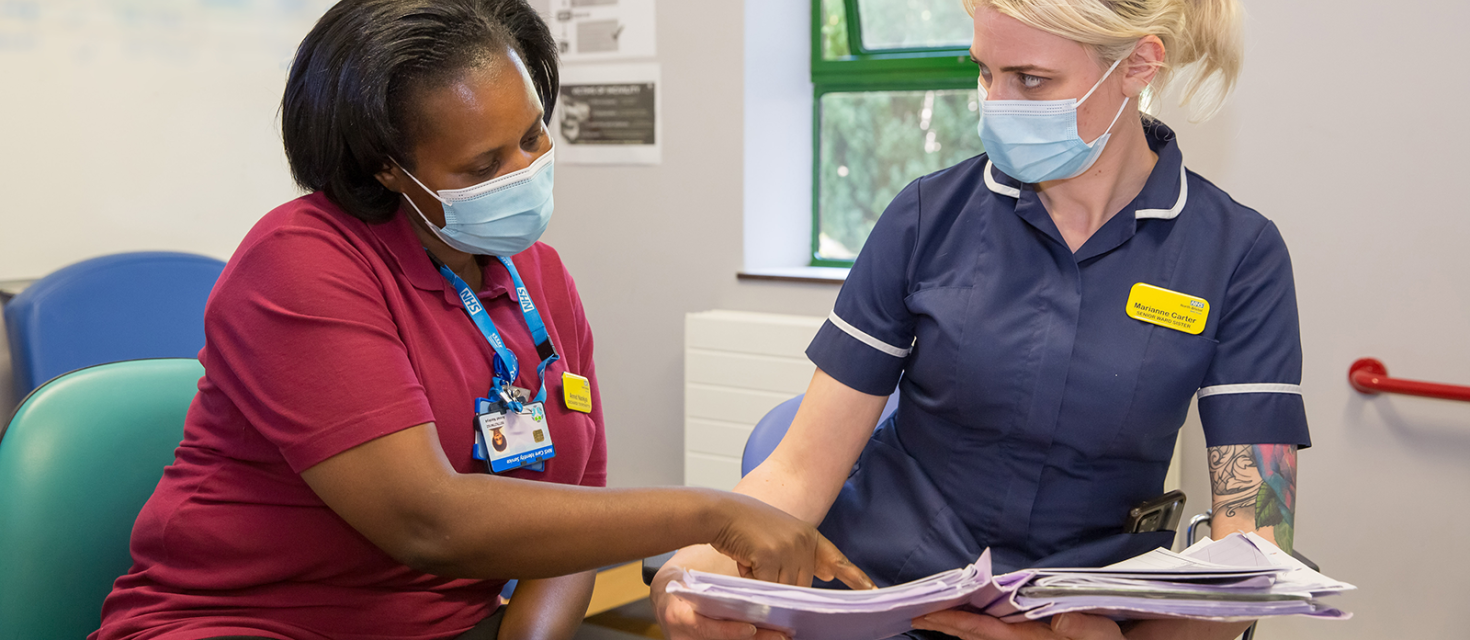Apprenticeships

Apprenticeships
We are proud to deliver clinical apprenticeship training and education through our partnership with the South West Association of Training Providers (SWATPro), as well as non-clinical apprenticeships training under our own Apprenticeship Centre, which has been awarded the Matrix Accreditation, in recognition of the high-quality information, advice and guidance they offer.
Ofsted inspectors have recently praised us for our employer-led apprenticeship delivery, saying: "Senior Trust leaders are highly committed to delivering apprenticeships to improve the skills, knowledge and behaviours of staff. Apprentices enjoy working in Southmead Hospital and are valued members of staff".
Our apprenticeships are a fantastic opportunity for existing staff to build skills and confidence and offer a route to a new career for those looking to join the Trust.
We currently deliver apprenticeships in:
- Senior Healthcare Support Worker (Level 3).
- Business Administration (Level 3).
- Customer Service (Level 2).
- Leadership Management (Level 3 Team Leader/Supervisor).
We also work with external training providers to develop staff in a wide range of apprenticeships in the following areas:
- Trainee Nursing Associates (Foundation degree in Science qualification level 5).
- Assistant Practitioners (Foundation degree in Science qualification level 5).
- Registered Nurse Degree (Batchelor of Science qualification level 6).
- Advanced Clinical Practice (Master of Science qualification level 7).
For apprentices on a programme with our in-house apprenticeship centre, you can access our Safeguarding Policy by clicking on the link below:
What is an apprenticeship?
An apprenticeship is a paid job where the employee learns and gains valuable experience. Alongside on-the-job training, apprentices spend at least six hours of their working week completing off-the-job learning to enable them to meet the skills, knowledge and behaviours within their chosen apprenticeship standard.
North Bristol NHS Trust offers a range of clinical and non-clinical apprenticeships to help you progress in your career. A typical programme of learning will last between 15 and 18 months.
Apprenticeships make a big difference to staff
- Earn while you learn.
- Receive recognised qualifications.
- Benefit from ongoing and personalised support.
- Gain real work experience.
- Improve your employability.
- Develop your skills.
The need-to-knows
- Apprenticeships are fully funded – staff do not have to pay for their apprenticeship.
- All NBT staff who are eligible are offered the opportunity to undertake a programme of learning.
- Apprenticeships take place during work time (off-the-job) – you will be allocated time away from your duties to complete your studies.
How does the off-the-job training work?
Off-the-job training is a statutory requirement for apprentices. It is training, which is received by the apprentice, during their normal working hours, to achieve the knowledge, skills and behaviours of the apprenticeship.
It is gained by attending study sessions, completing role play or simulation exercises, undertaking online learning, practical training such as shadowing and mentoring and writing assessments or workbooks.
Apprenticeships help employees, managers and teams in several ways
- Staff develop skills relevant to their organisation.
- Improved productivity and quality.
- Training can be adapted according to the needs of your department.
- Staff are motivated to learn new skills.
- Helps to expand and upskill your workforce.
All our apprenticeship roles will be advertised on our current vacancies and on the Government Find an Apprenticeship website.
For more information, please email our apprenticeship team ApprenticeshipTeam@nbt.nhs.uk.

